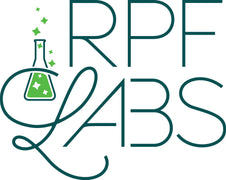FAQ
Plant Care
What is plant tissue culture?
Plant tissue culture is a method of propagating plants under sterile conditions, often to produce clones of a plant. It is widely used to produce clones of a plant in a method known as micropropagation.
Why is plant tissue culture important?
Plant tissue culture is important because it allows for the rapid multiplication of plants, propagation of disease-free plants, production of plants with desired traits, and conservation of endangered plant species.
What is a plantlet?
A plantlet is a young or small plant. In tissue culture, plantlets are grown in a controlled environment before they are hardened off and transferred to soil.
What does "in vitro" mean in plant tissue culture?
"In vitro" is a Latin term meaning "in glass". In plant tissue culture, it refers to the growth of tissues, cells, or organs in sterile containers, such as test tubes or petri dishes, under controlled environmental conditions.
What types of plants can be propagated through tissue culture?
Almost any type of plant can be propagated through tissue culture, including ornamentals, fruits, vegetables, and rare or endangered plant species. The exact methods and media used may vary depending on the plant species.
What do I need to start with plant tissue culture at home?
Starting with plant tissue culture at home requires some basic supplies including sterile containers (like test tubes or jars), a growth medium (often a gel with necessary nutrients), a sterilizing agent (such as bleach or alcohol), a heat source for sterilization (like a pressure cooker), and of course, the plant material you wish to propagate.
Why is my plantlet wilting or dying during the acclimation process?
If a plantlet wilts or dies during acclimation, it could be due to rapid changes in its environment, such as changes in humidity, temperature, light levels, or moisture. It's crucial to adjust these conditions gradually during the acclimation process.
What is a sterile medium and why is it important in plant tissue culture?
A sterile medium is a growth medium that has been sterilized to kill any microorganisms. This is important in plant tissue culture because it prevents the growth of bacteria, fungi, and other microorganisms that could harm the plant tissue.
How long does it take for a tissue-cultured plant to grow?
The time it takes for a tissue-cultured plant to grow can vary widely depending on the plant species and the specific conditions in which it's grown. In general, it can take several weeks to months for a plant to go from a small piece of tissue to a fully formed plantlet ready for acclimation.
Why do plantlets need to be acclimated?
Plantlets need to be acclimated because they are initially grown in a controlled, sterile environment with high humidity and low light. The outside environment is much harsher, with variable light, temperature, and humidity levels, as well as the presence of pests and diseases. The acclimation process helps the plantlets adjust to these new conditions gradually, increasing their chances of survival.
Store Information
Do you offer local pick up?
Yes! Simply select "local pick up" at checkout and email us (hello@rpf-labs.com) to arrange a pick up time.
What payment methods do you accept?
For online sales we accept PayPal, Apple Pay, Shop Pay, credit card, and debit card.
Do you offer payment plans?
Yes. Upon checkout you are able to select installment payments.
Do you offer wholesale?
No. Due to the limited availability of our tissue culture products we do not offer wholesale at this time.










